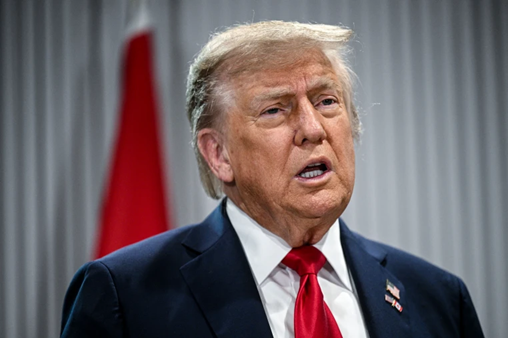Tuesday, June 24, 2025 - U.S. President Donald Trump has declared that the newly announced cease-fire between Iran and Israel, brokered by his diplomatic team, is not just a temporary pause in hostilities but a potentially enduring peace agreement. In a phone interview with NBC News on Monday night, Trump stated:
“I think the ceasefire is unlimited. It’s going to go
forever.”
Trump heralded the moment as a major geopolitical victory,
emphasising its significance for both regional stability and American global
leadership.
“It’s a great day for America. It’s a great day for the
Middle East. I’m very happy to have been able to get the job done. A lot of
people were dying, and it was only going to get worse. It would have brought
the whole Middle East down.”
This unprecedented development marks the first time in decades that a U.S.-led initiative has secured direct de-escalation between two of the most ideologically and militarily opposed powers in the region. Trump went further, claiming that this cease-fire could signify a permanent cessation of hostilities:
“I
don’t think Israel and Iran will ever be shooting at each other again.”
According to senior administration officials, Trump
personally negotiated with Israeli Prime Minister Benjamin Netanyahu in a
series of high-stakes conversations aimed at halting the rapid escalation.
Parallel to Trump’s efforts, a multi-tiered diplomatic operation unfolded
behind the scenes. Vice President J.D. Vance, Secretary of State Marco Rubio,
and special envoy Steve Witkoff spearheaded communication with Iranian
intermediaries via a combination of direct negotiations and backchannel
diplomacy.
The agreement reportedly stipulates that by midnight ET
Tuesday, both Iran and Israel would initiate a full cessation of military
activities, including airstrikes, covert operations, and cyber warfare
In a post on Truth Social, Trump announced the breakthrough,
attributing the success to what he called “American strength and smart
diplomacy.” He suggested this move could redefine the legacy of U.S. foreign
policy in the Middle East.
This cease-fire comes after a series of tit-for-tat escalations between Israel and Iran, including drone strikes, cyberattacks, and suspected sabotage operations across the region. The fear among global analysts had been that without immediate intervention, a full-scale regional war could erupt — potentially drawing in Lebanon’s Hezbollah, Syria, the Gulf States, and even American assets in the region.
Trump’s intervention, therefore, represents not just a cease-fire, but a high-risk diplomatic gamble that paid off—at least in the short term. However, experts caution that long-term peace depends on deep structural reforms, mutual trust-building mechanisms, and third-party verification of compliance.
Whether this cease-fire indeed “goes forever,” as Trump suggests, remains to be seen. The geopolitical, ideological, and security tensions that have defined Iran-Israel relations for over four decades are not easily erased by a single agreement, however historic it may be.







0 Comments